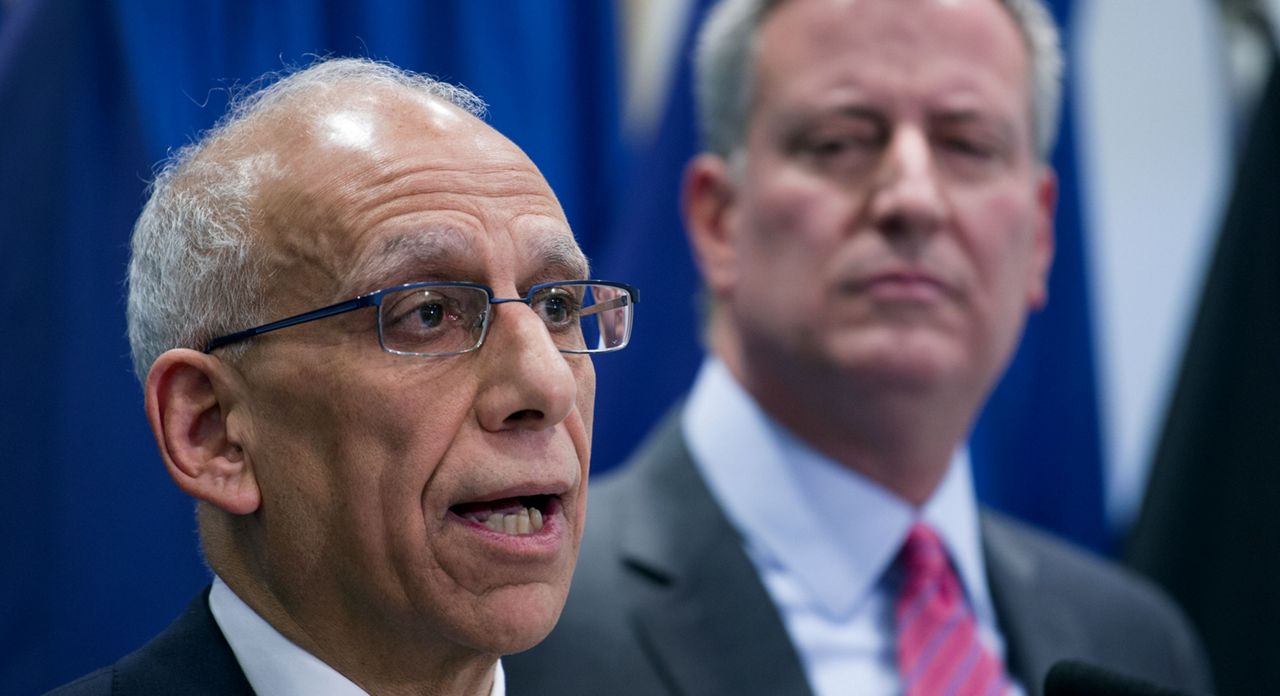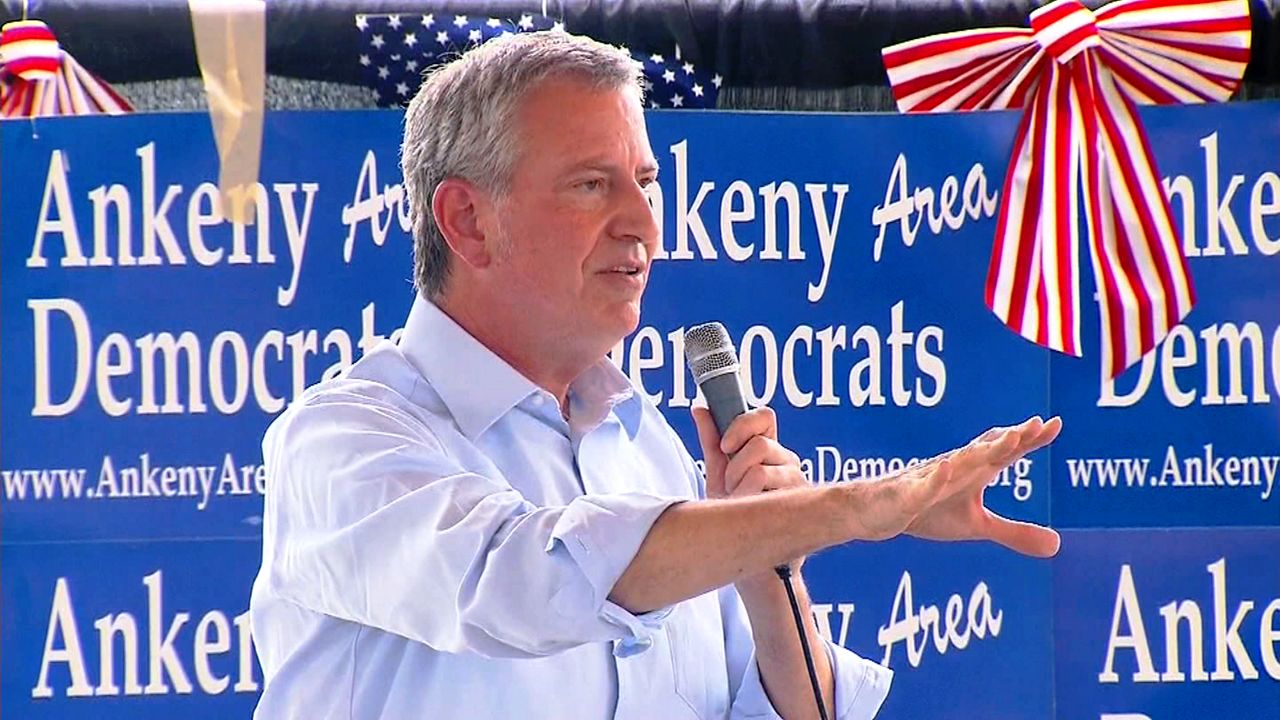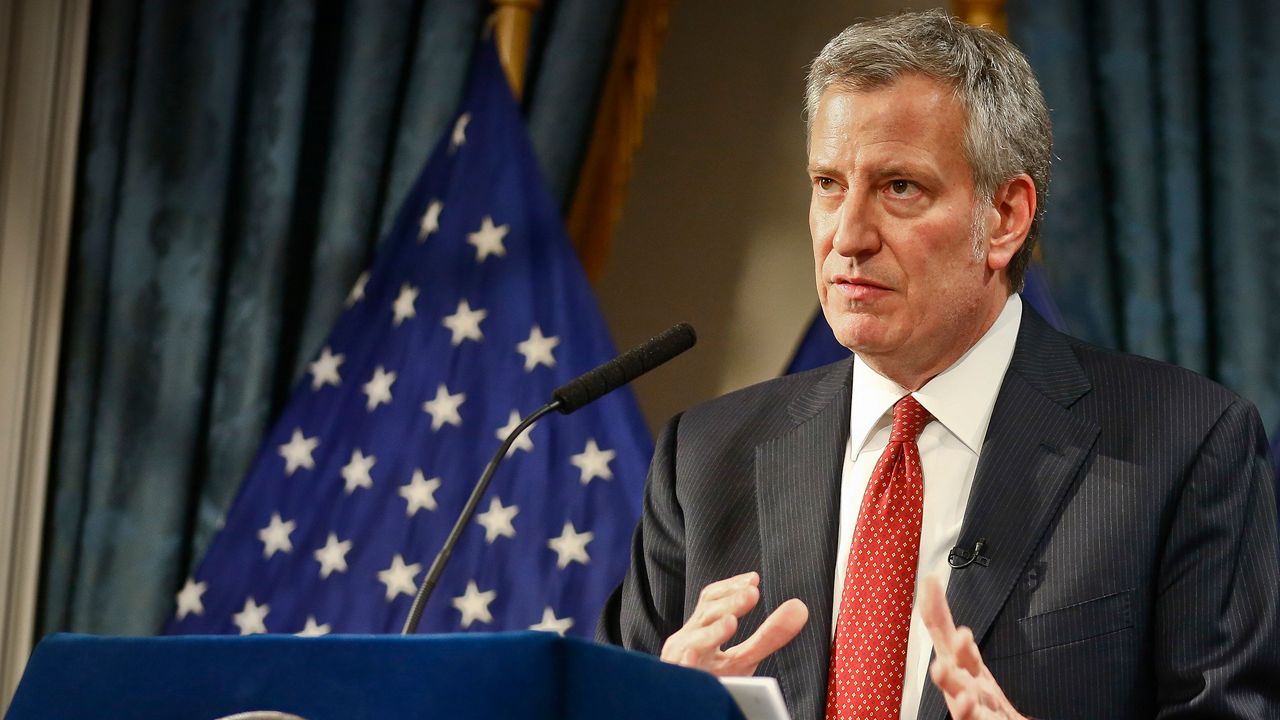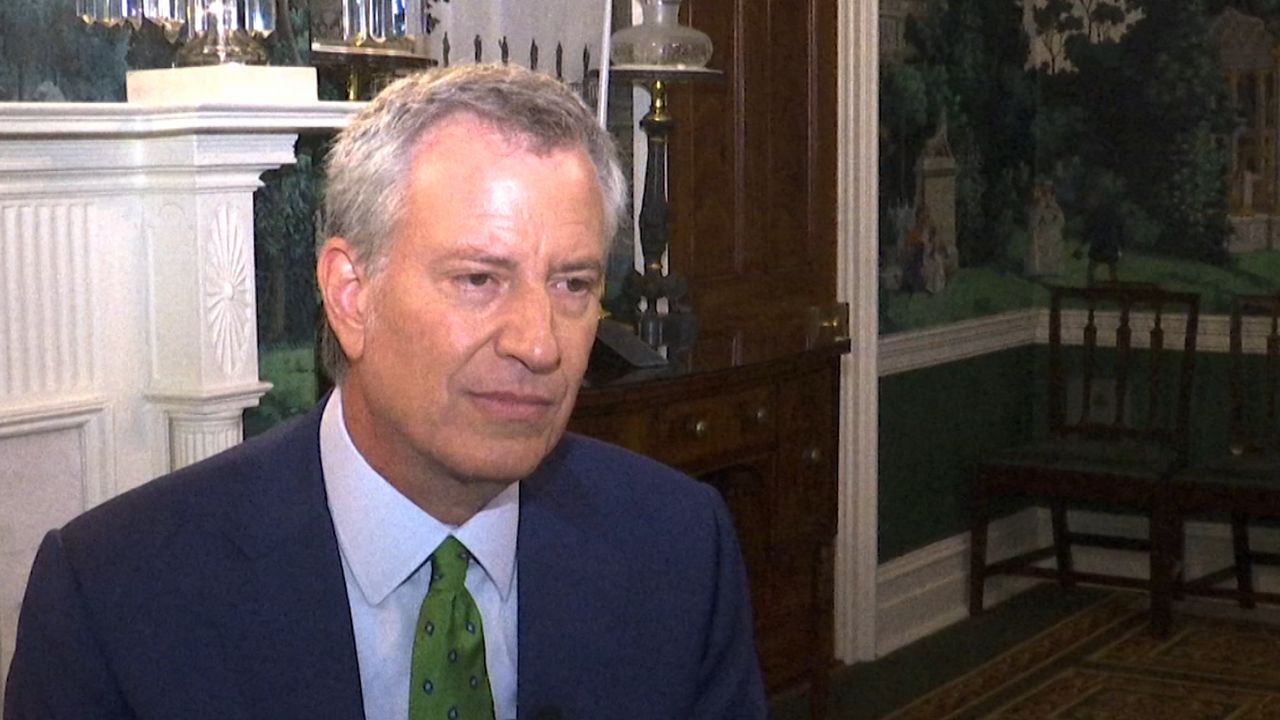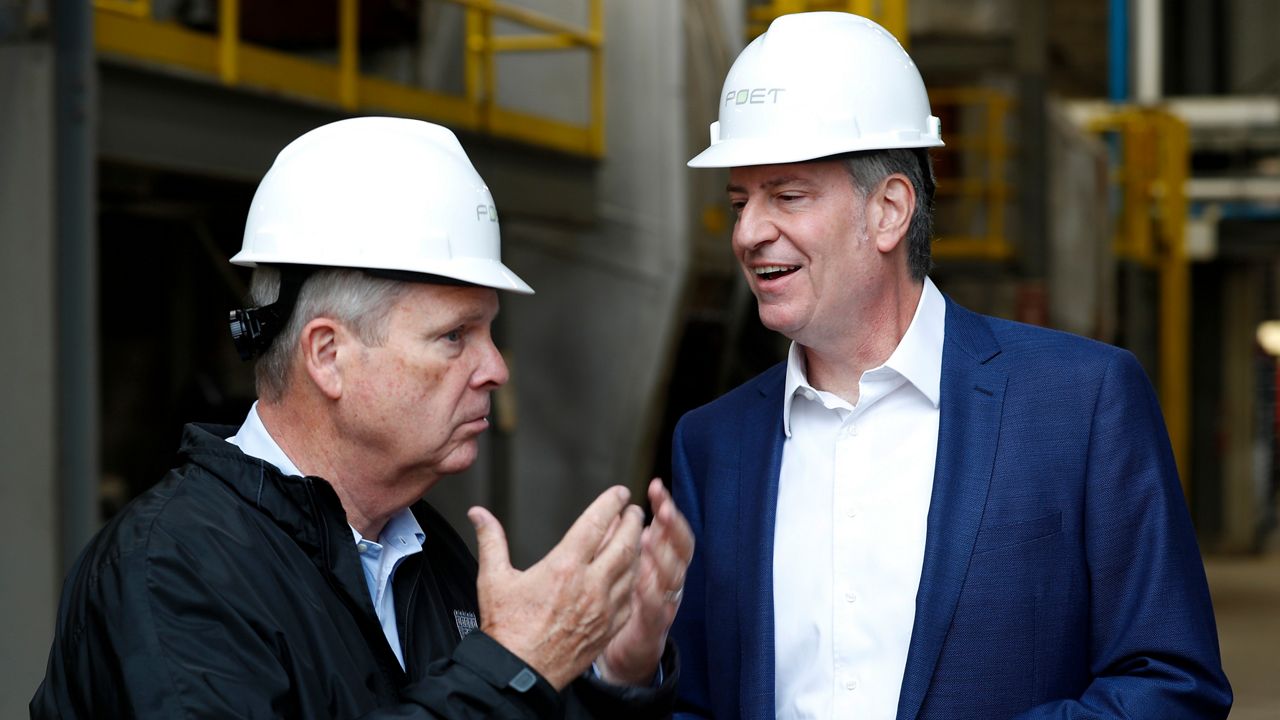Meet Dean Fuleihan. He's Mayor Bill de Blasio's second-in-command, his former budget guru, and, when the mayor is out of town campaigning for the White House, he'll run New York City.
A government veteran, Fuleihan spent more than three decades in state government, serving as the principal fiscal and policy adviser to the Assembly. He also served as one of Assembly Speaker Shelly Silver's top aides before joining the de Blasio Administration in 2014.
"The First Deputy Mayor is the Chief Operating Officer of the city," said Joe Lhota. "Dean Fuleihan, who has the job now, has a really good command of everything that is going on."
Lhota would know: he served as Rudy Giuliani's Deputy Mayor for Operations until 2001.
"When Mayor Giuliani would go out of town, the First Deputy Mayor becomes the acting mayor," Lhota said. "I was in constant contact with the mayor and his detail if we needed anything. And as Mayor de Blasio travels to New Hampshire and Iowa, he'll be in constant contact with the city."
During de Blasio's first term, Fuleihan was tapped to run the Office of Management and Budget, serving as the mayor's chief policy adviser overseeing the city's $92.5 billion budget. In 2017, de Blasio promoted Fuleihan to be his second-in-command, naming him First Deputy Mayor following the departure of Tony Shorris.
Sid Davidoff had a similar job back in the 70s during Mayor John Lindsay's administration. He was also one of Lindsay's top deputies when he embarked on his failed presidential run in 1972.
"Being mayor of the city of New York is really almost different than any other job in any other city," Davidoff said. "The people of this city have a love-hate relationship with the mayor, there is no doubt about it. If he's not here and something happens, they're angry. If he's here, it's his fault."
Municipal government operations are a tangled web of bureaucracy: Dozens of agencies, mayoral offices, and more than 250,000 employees keep New York City running every day.
The First Deputy Mayor sits atop that tangled web — just under the mayor — supervising 16 mayoral offices and advising de Blasio on policy related to the management of the NYPD, the Department of Education, and the Department of Investigation.
"Everything coming to one place — the first thing is you get up in the morning, whatever the emergency is, whatever the headline of the day you're dealing with," Davidoff said. "It isn't a job that you’re born into; it's a job that you have to have a great background in the field of administration — and city administration particularly. We are lucky that Dean Fuleihan has that."
De Blasio, who is joining a crowded field of more than 20 other candidates, has said he'll be in charge from anywhere the presidential campaign trail might take him.
"I don't doubt, you know, with modern communications, and with a structure as sophisticated as the city of New York, and the vision already locked in place and the team locked in place, I don't doubt our ability to keep things moving forward under any condition," de Blasio said on Inside City Hall earlier this month when Anchor Errol Louis asked how he could run the city while being a presidential candidate.
And while voters across the nation might struggle to distinguish New York City's mayor given the crowded field, here at home, New Yorkers will be less than familiar with Fuleihan. But will it matter?
"It's not necessary," Davidoff said. "You just want to know that that person is efficient and can do the job well."
City Hall officials said the mayor will continue to drive all decision making for the city and hold any planned meetings by phone while he's away.
------
Looking for an easy way to learn about the issues affecting New York City?
Listen to our "Off Topic/On Politics" podcast: Apple Podcasts | Google Play | Spotify | iHeartRadio | Stitcher | RSS




